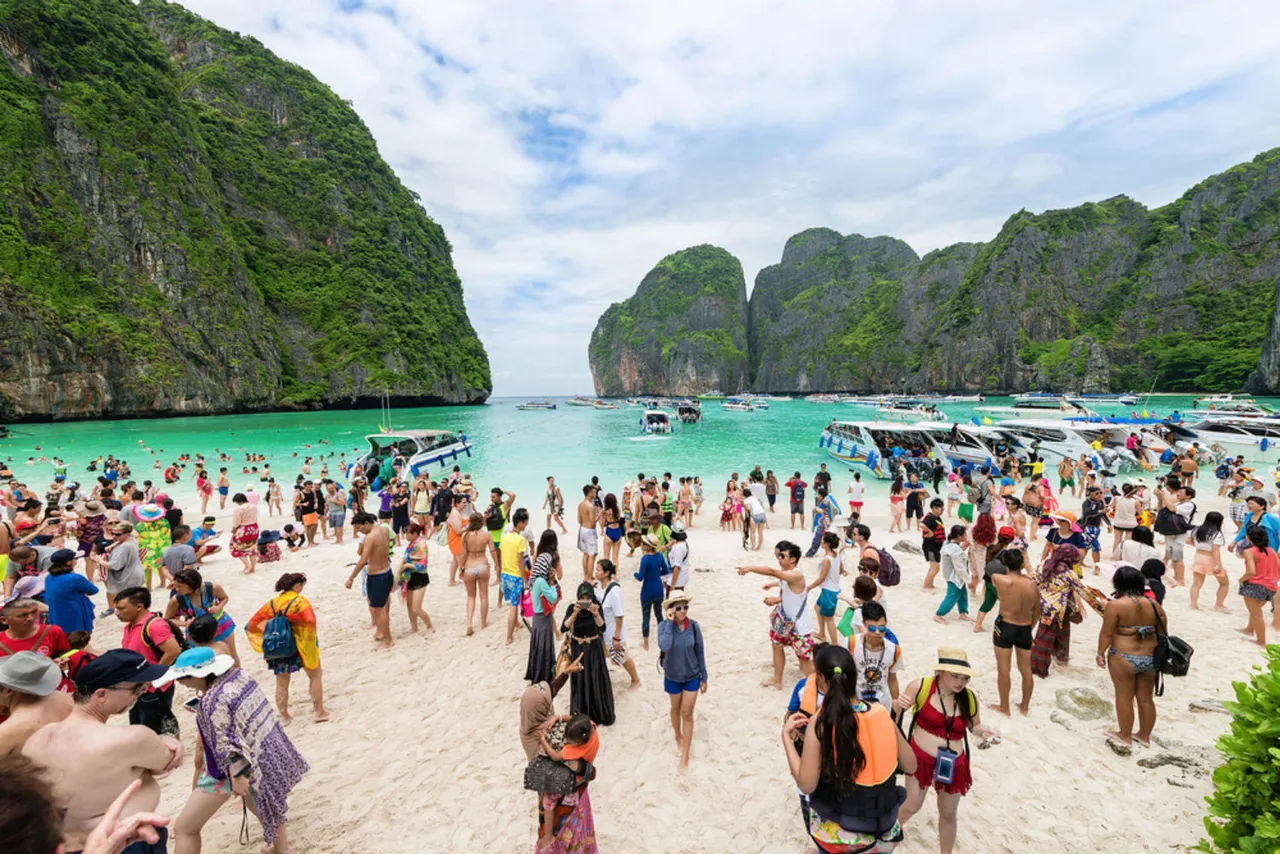
The tourism industry is a sector of the economy that is responsible for providing travel-related services and products to tourists, who are individuals or groups of people traveling for leisure, business, or educational purposes. The tourism industry includes a wide range of businesses and organizations that cater to the needs of tourists, such as hotels, restaurants, travel agencies, tour operators, and transportation companies.
The tourism industry is a significant contributor to the global economy, generating billions of dollars in revenue each year. It is also an important source of employment, with millions of people working in the tourism industry worldwide.
The tourism industry is diverse and includes various subsectors, such as:
- Accommodation: This includes hotels, resorts, motels, and other types of lodging that provide accommodation for tourists.
- Transportation: This includes airlines, buses, trains, and other transportation providers that help tourists get to their destinations.
- Food and beverage: This includes restaurants, cafes, bars, and other establishments that serve food and drinks to tourists.
- Travel agencies: These are companies that help tourists plan and book their trips, including flights, accommodation, and activities.
- Tour operators: These are companies that organize and conduct tours, including sightseeing, adventure, and cultural tours.
- Attractions: This includes theme parks, museums, historical sites, and other attractions that tourists visit during their trips.
- Events: This includes festivals, concerts, and other events that attract tourists and provide entertainment.
The tourism industry is subject to various external factors, such as economic conditions, political events, and environmental concerns. It is also affected by technological advancements, such as the rise of online booking platforms and the use of artificial intelligence to personalize travel experiences.
The components of the industry:
1. The Core Components:
- Travelers: The beating heart of the industry, driven by curiosity, wanderlust, and a passion for experiencing new things. Whether seeking leisure, business, or cultural immersion, their journeys bring life to the sector.
- Destinations: The diverse canvas on which experiences are painted. From bustling metropolises and historic landmarks to pristine beaches and untouched wilderness, every destination offers unique attractions and memories for travelers.
- Hospitality: The welcoming arms of the industry, providing services that cater to travelers' needs. Hotels, restaurants, transportation providers, tour operators, and local businesses all play a crucial role in ensuring a smooth and enjoyable experience.
- Activities and Experiences: The brushstrokes that paint the travel canvas. Guided tours, cultural events, adventure sports, culinary delights, and simply soaking in the local atmosphere offer travelers immersive experiences and lasting memories.
2. The Economic Force:
- Job Creation: The tourism industry is a significant employer, generating jobs in hospitality, transportation, entertainment, retail, and various other sectors. It supports local communities and economies, often in regions where other industries may be limited.
- Revenue Generation: Travel spending injects significant financial resources into destinations, benefiting businesses, governments, and local communities. Tourist dollars contribute to infrastructure development, cultural preservation, and overall economic growth.
- Foreign exchange: International tourism plays a crucial role in earning foreign exchange for countries, enabling them to import goods and services, strengthen their currency, and support economic development.
3. The Impact Beyond Bookings:
- Cultural Exchange: Tourism fosters encounters between people from different backgrounds, promoting understanding, respect, and appreciation for diverse cultures and traditions. It breaks down barriers and builds bridges of connection across the globe.
- Environmental Awareness: Responsible tourism practices can promote conservation efforts, raise awareness about ecological issues, and encourage sustainable development in destinations. Travelers can advocate for responsible tourism while experiencing new places.
- Personal Growth: Traveling opens minds, broadens perspectives, and challenges comfort zones. It can be a catalyst for personal growth, fostering adaptability, resilience, and a deeper understanding of oneself and the world.
The Future of Tourism:
The tourism industry is constantly evolving, embracing technology, sustainability, and personalization. With growing emphasis on responsible travel, authentic experiences, and local impact, the future holds exciting possibilities for travelers and destinations alike.